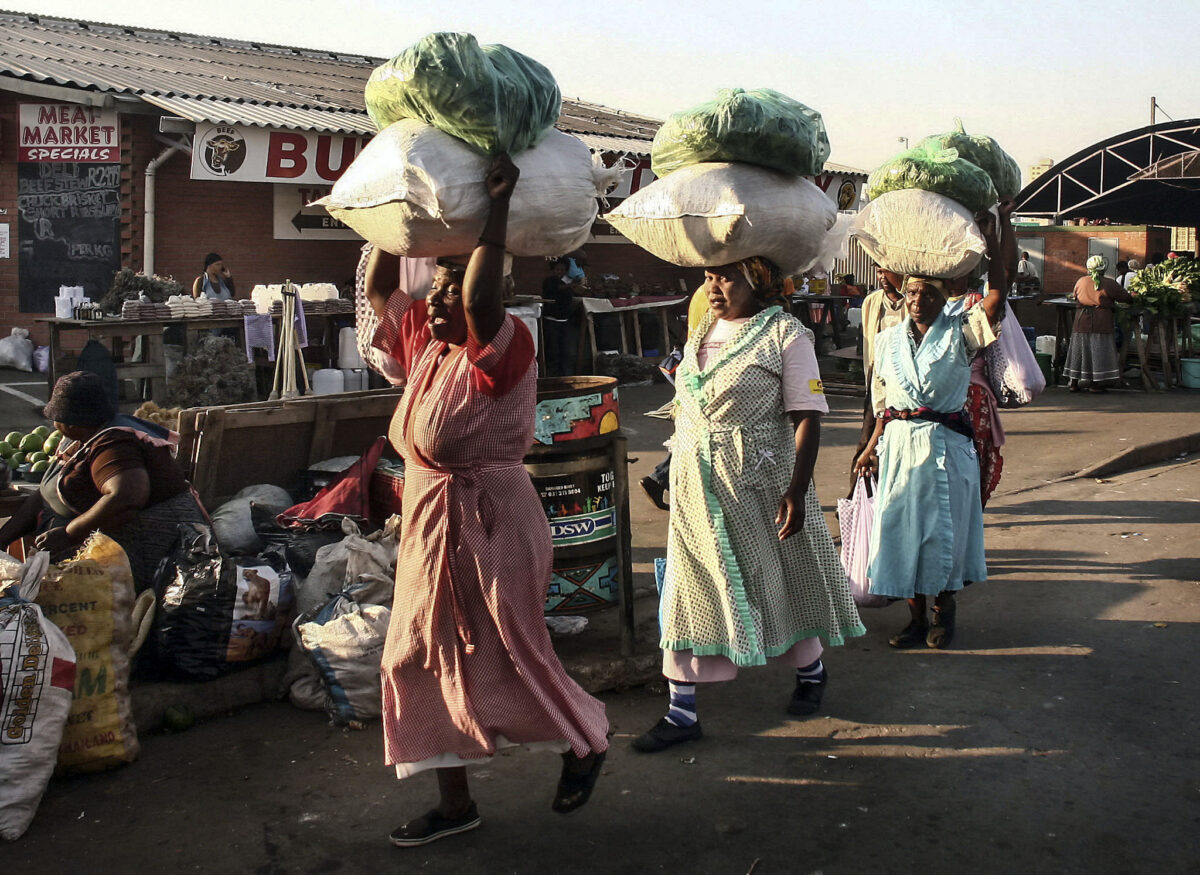Multiple crises highlight need to build local resilience in the food system
Small-scale farmers, food processors and traders in KwaZulu-Natal recently came together to plan how they could recover from the double crisis of the Covid-19 lockdown and the widespread looting that took place in the province in July.
The looting of stores prevented local farmers from obtaining essential supplies, such as animal feed. In addition, market access shrank as stock farmers found themselves unable to sell animals for ritual slaughter as traditional rites and ceremonies were cancelled or postponed.
A local small-scale farmer noted: “Winter is a bad month for grazing and since the grass is dry, we rely on purchasing feed from supermarkets. But the white owners of the few shops that were not looted refused to let us buy in their shops, saying that we (blacks) are the ones responsible for the looting in the first place.”
Such racism, it was noted at the meeting, took place in the context of decades of prejudice against small-scale black farmers, which has seen them excluded from policy and legal processes and which has been leveraged to justify confiscating their means of production.
The food system has remained dominated by a few large commercial players, as the Competition Commission reported last year. Indeed, under Covid-19, official responses actually entrenched this dominance.
The participants at the meeting, which was held in uMgungundlovu district in Pietermaritzburg on 27 September, issued a call to “go local”, that is, for action to foster greater resilience in the food system by increasing local control over it. Under such a system, which would help to create jobs and sustain livelihoods, consumers would increasingly eat food produced in their vicinity.
The participants at the uMgungundlovu Food-Systems Dialogue included small-scale farmers, informal food traders, food processors, former farm workers, fresh-produce wholesalers, civil society activists, researchers and a local ward councillor.
The wholesalers described how they had launched a local marketing campaign using handwritten posters made from old cardboard, in an effort to drum up business; and how they had leveraged local community networks, such as that of the Shembe Church, to distribute their produce locally when hawking on the streets was prohibited under the government’s Covid-19 lockdown regulations.
The small-scale farmers said they had managed to “dry farm”, producing crops without or with only limited irrigation, and created mulching with material covers to conserve soil moisture. Others described how they had changed to organic farming, using compost from animal waste, after they were unable to access fertiliser from stores.
The participants noted the importance of the financial support that they had received from the Association for Rural Advancement (Afra) and other nongovernmental organisations operating in the area.
The meeting highlighted the importance of forging and adopting recovery strategies to enhance the resilience of local food systems. One farmer noted: “The state does not have solutions; we need to come up with solutions and implement them.”
There were calls for the government to support their efforts to farm in the extremely cold conditions that they experienced in winter, for example through the supply of farming tunnels. The farmers desire official support that can help them to diversify and make their farming practices more resilient. The local municipality needs to provide a reliable, uninterrupted water supply so they can expand their operations and compete more effectively in the food system.
A farmer from Ozwathini said: “We do not have water; how can we be expected to perform like white established farmers? We do not get the necessary support. We do not have enough land; we are not getting support from the government.”
The farmers vented their outrage at the slow pace of current land reform efforts and called for faster redistribution to address the demand for locally produced food that became evident during the recent crises, but which they had been unable to meet from their small plots.
Concerns were also raised about the widespread use of GMOs (genetically modified organisms) and agrochemicals in farming, as the farmers believe these affect the health of consumers.




